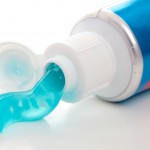
Toothbrushing is effective at removing dental plaque. While this can be achieved without the use of toothpaste (dentifrice) the use of fluoride toothpaste is recommended as there is good evidence to show that this will reduce caries. As well as the anticaries effect of toothpaste there is the question of whether toothpaste also has an anti-plaque effect. In order to test this effect the 4-day non-brushing model using dentifrice slurry has been used.
The aim of this review was to assess the effect of a regular fluoride dentifrice compared to water or saline on dental plaque inhibition.
Methods
Searches were conducted in the (MEDLINE-PubMed), the Cochrane Central Register of Controlled Trials (CENTRAL) and Embase databases with no date or language restrictions. Randomized controlled clinical trials (RCT) or a controlled clinical trial (CCT) in adult non-institutionalised patients comparing regular dentifrice against water or saline using a non-brushing 4-day plaque regrowth model were considered.
Two reviewers independently selected studies extracted data and assessed study quality. Meta-analysis was conducted were possible and the overall quality of evidence was assessed using the GRADE approach.
Results
- 9 studies all using a cross-over design were included.
- All the studies were considered to be at low risk of bias.
- For the Quigley & Hein Turesky Plaque Index al (5 studies, 13 comparisons) there was a significant difference of means in favour of rinsing with a dentifrice slurry; DiffM = −0.30 (95% CI: −0.38; −0.22 ) P < 0.00001.
- For the Green and Vermillion Index (2 studies, 11 comparisons) a significant difference in means in favour of rinsing with a dentifrice slurry was seen; DiffM = −0.25 (95% CI: −0.32; −0.18) P < 0.00001.
- There was also a a significant difference in favour of the rinsing with dentifrice slurries for plaque area (5 studies, 19 comparisons); DiffM = −0.30 ( 95% CI: −0.38; −0.23). P < 0.00001.
- The overall quality if evidence was considered to be moderate.
Conclusions
The authors concluded: –
The results of this review demonstrate moderate-quality evidence for a weak inhibitory effect on plaque regrowth in favour of the use of a dentifrice.
Comments
We blogged about an review by this group (Dental Elf – 17th Oct 2016) that highlighted that toothpaste was not essential for plaque removal although the caries preventive effect of fluoridated toothpastes is well evidenced. In addition to fluoride a wide range of chemical agents have been added to toothpastes for bad breath, staining, caries, gingivitis, dental plaque, dental calculus, demineralisation and dentinal hypersensitivity and the aim of this review was to assess the direct effect of toothpaste on plaque itself. Because of the different plaque indices used different in slurry rinsing protocols and wash out periods and study duration and the variation in use of baseline prophylaxis there was a great deal of heterogeneity between the studies. While less plaque formation was demonstrated in all the dentifrice slurry groups a sub-group analysis of the studies of the agents used triclosan demonstrated the highest level of plaque inhibition. This is not unexpected as the 2013 Cochrane review by Riley and Lamont (Dental Elf – 9th Dec 2013) found that toothpastes with reduced plaque and gingival inflammation as well as caries.
Twice daily toothbrushing with a fluoridated toothpaste is widely recommended for oral health and while not greatly assisting in mechanical removal of plaque fluoride and other added ingredients support the regular use of toothpaste as a cornerstone fro maintaining good oral health.
Links
Primary Paper
Valkenburg C, Van der Weijden F, Slot DE. Is plaque regrowth inhibited by dentifrice?: A systematic review and meta-analysis with trial sequential analysis. Int J Dent Hyg. 2018 Aug 31. doi: 10.1111/idh.12364. [Epub ahead ofprint] Review. PubMed PMID: 30169912.
Other references
Dental Elf – 17th Oct 2016
Dental Elf – 9th Dec 2013
